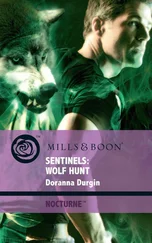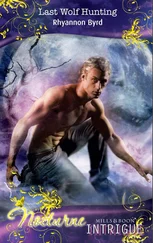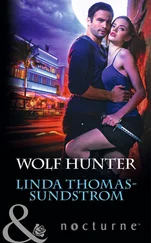Armand Cabasson - Wolf Hunt
Здесь есть возможность читать онлайн «Armand Cabasson - Wolf Hunt» весь текст электронной книги совершенно бесплатно (целиком полную версию без сокращений). В некоторых случаях можно слушать аудио, скачать через торрент в формате fb2 и присутствует краткое содержание. Год выпуска: 2012, Издательство: Gallic Books, Жанр: Старинная литература, на английском языке. Описание произведения, (предисловие) а так же отзывы посетителей доступны на портале библиотеки ЛибКат.
- Название:Wolf Hunt
- Автор:
- Издательство:Gallic Books
- Жанр:
- Год:2012
- ISBN:нет данных
- Рейтинг книги:5 / 5. Голосов: 1
-
Избранное:Добавить в избранное
- Отзывы:
-
Ваша оценка:
- 100
- 1
- 2
- 3
- 4
- 5
Wolf Hunt: краткое содержание, описание и аннотация
Предлагаем к чтению аннотацию, описание, краткое содержание или предисловие (зависит от того, что написал сам автор книги «Wolf Hunt»). Если вы не нашли необходимую информацию о книге — напишите в комментариях, мы постараемся отыскать её.
Wolf Hunt — читать онлайн бесплатно полную книгу (весь текст) целиком
Ниже представлен текст книги, разбитый по страницам. Система сохранения места последней прочитанной страницы, позволяет с удобством читать онлайн бесплатно книгу «Wolf Hunt», без необходимости каждый раз заново искать на чём Вы остановились. Поставьте закладку, и сможете в любой момент перейти на страницу, на которой закончили чтение.
Интервал:
Закладка:
‘Forwards! Forwards!’ cried the officers.
The soldiers advanced, packed so tightly one against the other that even had one of them wanted to flee they would not have been able to. The village of Essling came to life, as if the myriad
Austrians occupying it had been reanimated. Plumes and plumes of white smoke were released as artillery and their hordes of gunners stormed into action, like a volcano erupting. And at the same time, there were explosions on all sides, caused by the fury of the fire from the heavy artillery on the Isle of Lobau. Buildings were blown to smithereens but their smoking debris was immediately blanketed with new soldiers defending the village. That determination impressed the French - these Austrians were not the same breed as they had fought at Austerlitz. Those Austrians had rapidly thrown in the towel under pressure. Margont did not understand their resistance - he wanted to shout that they should ally themselves with Napoleon against their oppressive monarchies. But the Austrian bullets responded to his dreams of brotherhood by storming his ranks. The drums beat out the charge, one of the few sounds distinguishable in the uproar all around.
‘Long live the Emperor!’ yelled the infantry.
The 26th Light Infantry and the 18th of the Line swarmed into the village and its redoubts. Saber, with sabre aloft, speeded up to
overtake Margont and lead the company in a shock frontal attack on the Austrians barricading the main street. The two sides fired at point-blank range before throwing themselves at each other. Smoke drowned everything. Margont was suffocating in the blanket of fog and could recognise no one in the tumult of gesticulating figures. The flares of successive gunshots were like chaotic will-o’-the-wisps. Soldiers were firing so near to Margont that he could feel the burning wind of the guns on his face. Ghostly shadows hurried towards him, filling out and revealing themselves as enemy soldiers. A Hungarian tried to hit him in the face with the butt of his rifle. Margont dodged but, encumbered by the soldiers around him, could only defend himself by striking his assailant on the chin with the hilt of his sword. Pain forced the Hungarian to drop his weapon. The flow of French knocked him over and trampled on him. A dismounted hussar - one of Wallmoden’s cavalry - flung himself on Margont. The hussar was wounded all over and bleeding copiously, and there was a mad glint in his eye. His sabre was bent from having broken the skulls of Boudet's artillerymen.
He tried to decapitate Margont, crying, ‘Austria!’ but Margont bent his knees just in time.
‘We must save our major!’ yelled a conscript, confusing Margont with his superior officer. The young soldier perforated the hussar’s abdomen with his bayonet while the latter ran him through with his sword. The sappers of the 18th broke down doors with their axes and the French poured into the barricaded houses. Margont was swept forward on one of these waves; those following him were foolish enough to believe that they would find safety in there. Infantrymen were firing in a dining room and finishing their work with bayonets. In a corner of the room two Hungarians were sheltering behind a knocked over table, defending their pathetic excuse for a fortress. A lieutenant set off up the stairs, trailing grenadiers in his wake and driving back the Austrians, who defended each step. The massacre continued all the way to the first floor. Finally the building was taken. There was an exodus — soldiers running out to be sucked into the confrontations in the streets. Others lingered, pretending to be wounded or helping
those who really were. Margont was about to leave when he spotted a little branch of oak on the floor. Austrians and Hungarians had a tradition of attaching a few leaves of holly, willow or poplar to their helmets or shakos ... The tradition symbolised their desire to make peace. But these leaves were red, bathing in a pool of already coagulating blood.
Margont reached the street again. The melee had moved on, leaving hundreds of bodies in its wake. A captain was trying to stand up, leaning on his sabre planted in the ground. Wounded soldiers were clinging to the legs of the able-bodied, pleading for help, or at least for a drink. Others were propped against ruined walls. Margont joined the nearest French soldiers. They had crossed Essling. Austrians were fleeing before their eyes or throwing their arms on the ground and turning themselves in as prisoners. ‘Victory! We’ve won!’ cried the French.
Lefine came to join Margont, tears of joy making tracks on his cheeks blackened by gunpowder.
‘We’re still alive! At least I think we are ... I have the impression that Irénée stole your campaign.’
The most advanced troops of Klenau’s VI Corps were evacuating Essling in order to retrench in Aspern. But Austria’s spirit was broken and Aspern also found itself under assault. This halted Klenau’s spectacular progression; he was now isolated and informed Archduke Charles that he was retreating. This was very bad news for the Austrians and was rapidly followed by a series of other problems. John’s thirteen thousand men, desperately needed as reinforcement, would not be there for more than two hours ... The Austrian troops were overwhelmed and began to show signs of exhaustion when Napoleon’s fresh reserve troops assailed them. The Austrian left wing was in disarray, its right wing was drawing back and the centre was weakening by the minute. The Archduke therefore decided to order the retreat. He wanted at all costs to avoid the destruction of his army, because the fate of the Habs-burg monarchy depended on it. In choosing to give in now, he was leaving himself enough healthy troops to withdraw in good order and defend themselves against the French, who would certainly pursue them.
The Austrians had lost forty-five thousand soldiers, twenty-five thousand killed or wounded and twenty thousand taken prisoner. The French and their allies, thirty-five thousand, of which two-thirds had been killed or wounded.
Napoleon declared: The war has never been like this before. We have neither prisoners nor enemy cannon: today we have achieved nothing lasting.’
CHAPTER 32
ON 7 July Napoleon decided to let his army rest for the day. Detachments of hussars and mounted chasseurs harried the retreating Austrian army but came up against the Archduke’s cavalry. The Emperor wanted to pursue the enemy army, to break it up and encircle the isolated units one by one ... the pursuit had to be decisive in order to convert victory on the battlefield into total victory. The next day Napoleon would set all his troops to this task. The Grande Armée was in great confusion. Everywhere, soldiers were wandering about, isolated or in little groups, looking for their battalions. It would take hours to reorganise everyone, especially as it was hard to transmit orders. Numerous officers had been killed, interrupting the chain of command. This dysfunction generated misunderstandings and rumours. It was said that Massena’s IV Corps - which had lost twenty-five per cent of its soldiers - was going to be allowed to rest in Vienna. A few minutes later an aide-de-camp announced that it was to prepare for the pursuit.
Margont was in the village of Leopoldau to the south-west of the battlefield, taking stock of the state of his company. He had sent most of his able-bodied soldiers to collect the thousands of wounded who had not yet been tended to. Lefine was in an apathetic state, amazed still to be alive. He was sitting on a heap of rubble and, at his feet, dozens of infantrymen were asleep right there on the ground - they could have been dead. Behind him the village’s ruined houses threatened to collapse, so that Lefine looked like a petty king who had not yet realised that his kingdom was no more. Piquebois was supervising the distribution of cartridges. Gunners were gathered round an ammunitions wagon and were filling their cartridge pouches. The company needed an endless supply of bullets.
Читать дальшеИнтервал:
Закладка:
Похожие книги на «Wolf Hunt»
Представляем Вашему вниманию похожие книги на «Wolf Hunt» списком для выбора. Мы отобрали схожую по названию и смыслу литературу в надежде предоставить читателям больше вариантов отыскать новые, интересные, ещё непрочитанные произведения.
Обсуждение, отзывы о книге «Wolf Hunt» и просто собственные мнения читателей. Оставьте ваши комментарии, напишите, что Вы думаете о произведении, его смысле или главных героях. Укажите что конкретно понравилось, а что нет, и почему Вы так считаете.











